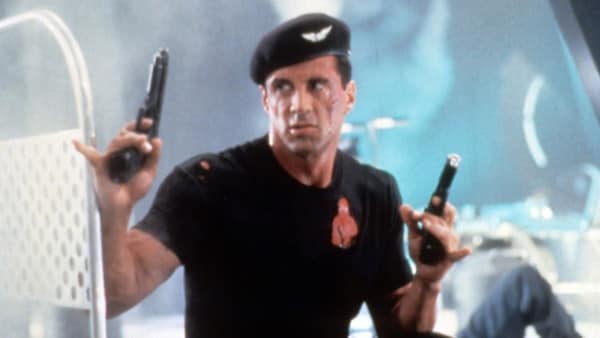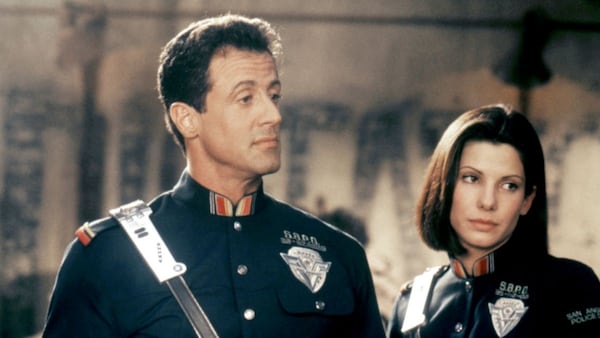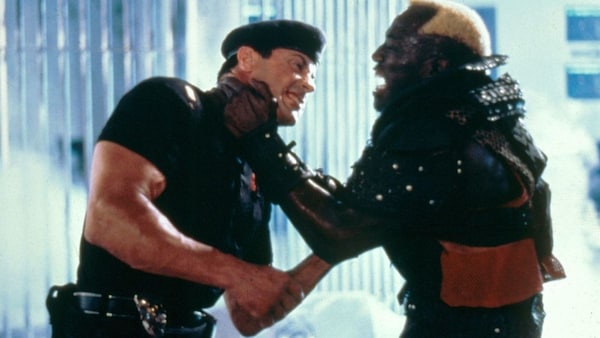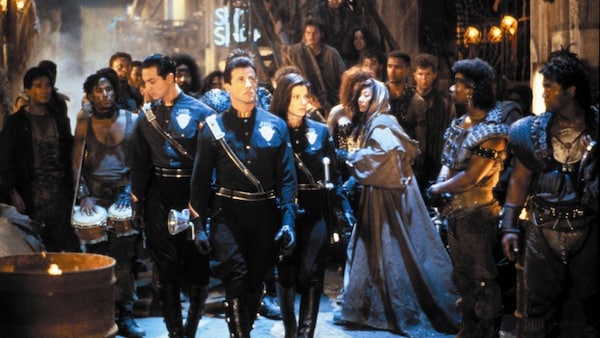Guilty Pleasure: A revisit on Sylvester Stallone’s cheesy action film, Demolition Man
The dystopian sci-fi film from the early 90s is a cult classic

Last Updated: 12.07 AM, Jan 09, 2022
The 80s and 90s in Hollywood were a reflection of the socio-political climate of the Reagan era in the United States. Even the action films that were released at the time were a reflection of former US President and actor, Ronald Reagan himself - a self-styled macho hero that resonated well with his films. It is one of the reasons why several action films starring Jean-Claude Van Damme, Steven Sagal, Chuck Norris, Arnold Schwarzenegger, Mel Gibson, Bruce Willis, and Sylvester Stallone, portrayed testosterone-fuelled hyper-masculine action heroes that almost became synonymous with Hollywood blockbusters. The one film, despite its obvious lack of finesse and guile, did stand out for its exploration into Orwellian themes, as well as borrowed storylines from HG Wells’ The Time Machine and The Sleeper Awakes, and Aldous Huxley’s Brave New World was the Demolition Man. The aforementioned novels are regarded as the pioneers of the dystopian sci-fi genre.
Demolition Man is not a film that one would regard as a thought-provoking social commentary that dives into the perils of a police-state in a dystopian setting. Although, if the responsibilities of making the film were entrusted upon someone with the flair for such themes, it could have been turned into something of the ilk of Blade Runner, or at least close to it. For director Marco Brambilla, the concept was simply beyond his range, considering his other directorial credits include erotic films and the truly underwhelming action-comedy, Excess Baggage. Demolition Man, therefore, remains his most memorable film. To his credit, he has managed to manoeuvre the film into something that is easily accessible to a wider demographic with its over-the-top action sequences and its larger than life hero, John Spartan (Stallone).

Demolition Man can be considered as a beginners guide to literary works on Orwellian themes. It breaks down several complex ideologies in layman’s terms and expounds them without the prerequisite to critically analyse the subtext. The film even uses mild exposition to convey its ideas through John Spartan’s character, who has been brought to life in the year 2032 after being sentenced to cryosleep in 1996. The former LAPD detective has been brought back to life to stop his old arch-nemesis, Simon Phoenix. Phoenix, played by the brilliant Wesley Snipes, escapes from the cryo-prison and wreaks havoc on the new city of San Angeles, built atop the ruins of the old Los Angeles.

The conceptualisation of the city, San Angeles is crucial in convincing the audience that the world has in fact changed in 2036. Surprisingly, the setting and the futuristic designs have predicted several technological advancements accurately and moreover, the film also predicted that Arnold Schwarzenegger would become an American politician with surprising accuracy. However, it's a humorous take on the 2036 society which shows people living in a state of bliss, without free will, that truly strikes a chord with contemporary societies. Sandra Bullock’s turn as Lenina Huxley, whose name is an obvious homage to Aldous Huxley, embodies the new society in 2036. Whereas Stallone’s John Spartan is the POV through which the audience experiences the new era. But the most important character is the villain Simon Phoenix played by Wesley Snipes.

Simon Phoenix, despite being turned into a hyper-intelligent and overpowered killing machine with his morbid sense of humour, is arguably the most relatable character in the film. He even makes jokes about the comical setting, and by its extension, the film itself. Snipes’s natural charm and charisma makes an otherwise one-dimensional villain, a force to be reckoned with. His character perfectly complements Stallone’s macho hero, and the film would have probably failed at the box office, if not for Snipes. The film also boasts an excellent ensemble of Denis Leary, Bob Gunton, and Nigel Hawthorne. Hawthorne’s version of ‘Big Brother’ is well-essayed despite being a cliche.

The obvious references to the Morlocka and Eloi from HG Wells’ The Time Machine are hard not to miss, with how the group of people living underground called the Scraps and the affluent living above ground are represented. In retrospect, the film is self-aware of its quality, or lack of, but it has found just the right balance to make it an enjoyable watch. It is less tragic and a more fun version of George Orwell’s 1984, which is probably one of the reasons why the film was a blockbuster.

 Premium
Premium